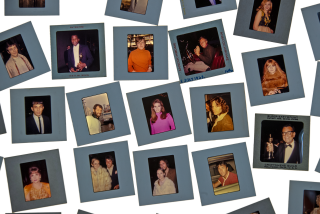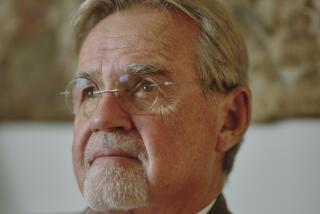Review: ‘Remembering Gene Wilder’ delivers a comedy icon in all his magnetic weirdness
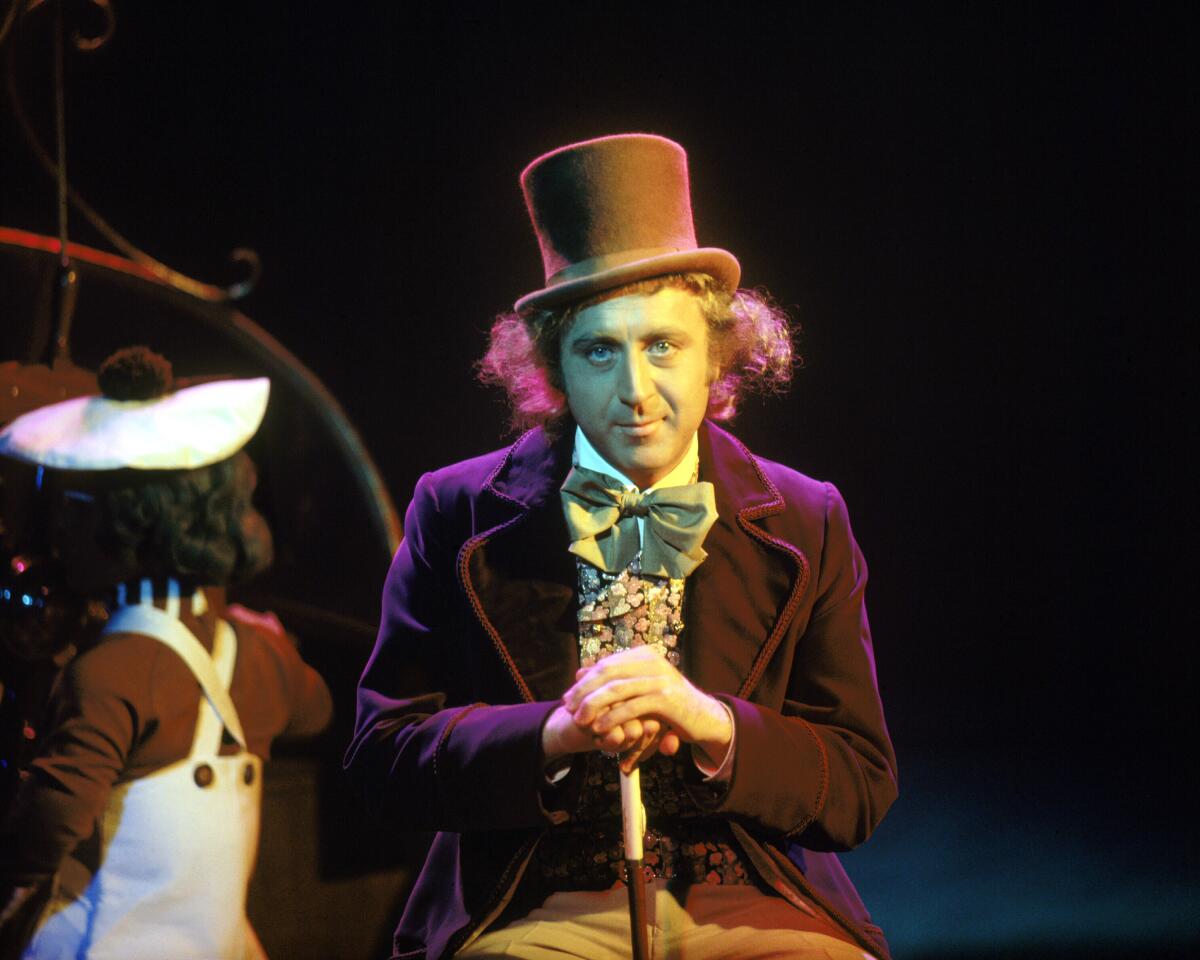
The lovely and loving documentary “Remembering Gene Wilder” is by no means a complete picture of the legendary comedic actor who died in 2016 at 83. But within the bounds of a fast-paced 90 or so minutes, director-editor Ron Frank and writer Glenn Kirschbaum enjoyably guide us through many highlights of Wilder’s career and personal life, vividly reaffirming why the azure-eyed, electric-haired performer was such a beloved star and persona.
Using a wealth of classic film clips, fine archival footage and photos, buoyant interviews with such Wilder friends and colleagues as Mel Brooks, Harry Connick Jr., Alan Alda and Carol Kane, and stretches of gentle narration by Wilder himself (taken from the audiobook of his 2005 memoir, “Kiss Me Like a Stranger”), the movie moves largely chronologically from his Milwaukee childhood to the end of his life, which was claimed by the ravages of Alzheimer’s disease.
Born Jerry Silberman into a Russian Jewish family, Wilder (he changed his name early in his acting career) was warned as a child never to argue with his heart-impaired mother because he “might kill her.” He turned instead to trying to make her laugh, which proves an ideal origin story for someone who would go on to regale audiences with his unique comic skills. Input from Wilder’s cousin, Rochelle Pierce, adds some insider perspective on the actor and his family.
The film jumps to Wilder’s first stage appearances and the one that would famously change his life: acting on Broadway in 1963’s “Mother Courage and her Children” with star Anne Bancroft. During the show’s run, she suggested her talented castmate to her then-boyfriend, Mel Brooks, for a part in a wacky screenplay he wrote called “Springtime for Hitler.” Several years later, Brooks cast Wilder as neurotic accountant Leo Bloom in the satire retitled “The Producers.” A star — and one of the great movie partnerships — was born.
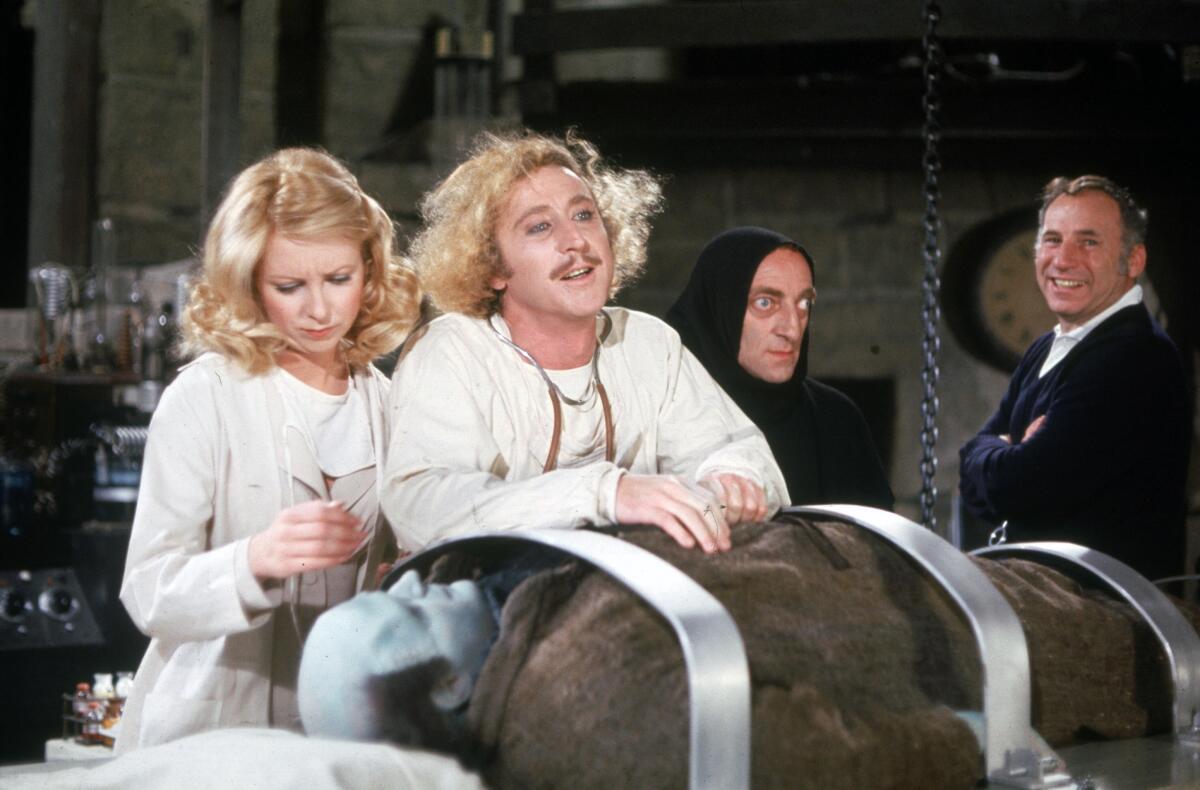
Peppered with warm, detailed memories from Brooks and backed with riotous snippets from the outrageous 1967 comedy, the doc tracks the creation of Wilder’s Oscar-nominated performance opposite the irrepressible Zero Mostel. Reminders of such loony moments as Wilder’s “blue blanket” meltdown underscore the actor’s unbridled genius.
Rounding out the Wilder-Brooks trifecta of comedy knockouts is coverage of their storied collaborations on two iconic 1974 releases: the western send-up “Blazing Saddles,” in which Wilder replaced Gig Young as the Waco Kid, and “Young Frankenstein,” the horror-comedy with Wilder (who co-wrote with Brooks) in the title role. An array of memorable film clips and making-of-anecdotes from Brooks and “Frankenstein” producer Michael Gruskoff, along with creative observations of Wilder (“When he got excited, he was a volcano,” recalls Brooks) make this part of the doc especially fun.
Wilder’s early supporting role in “Bonnie and Clyde,” his famed title portrayal in “Willy Wonka and the Chocolate Factory,” his, er, sheepish turn in Woody Allen’s “Everything You Always Wanted to Know About Sex (*But Were Afraid to Ask),” forays into directing (“The Adventure of Sherlock Holmes’ Smarter Brother,” “The World’s Greatest Lover”) and his screen pairings with another comedic giant, Richard Pryor (“Silver Streak,” “Stir Crazy,” “See No Evil, Hear No Evil”), also receive their closeups. (Pryor’s daughter, Rain, adds much to the discussion.)
The film’s attention to Wilder’s Judaism mainly involves his endearing role as a Polish rabbi traveling to San Francisco in the 1979 comic western “The Frisco Kid.” (Harrison Ford replaced, of all people, John Wayne, as a bank robber who befriends the rabbi.) Clips from the box-office failure show Wilder at his Yiddish-spouting, Hasidic-garbed best; veteran producer Mace Neufeld reminisces about the production and Wilder’s deft contributions.
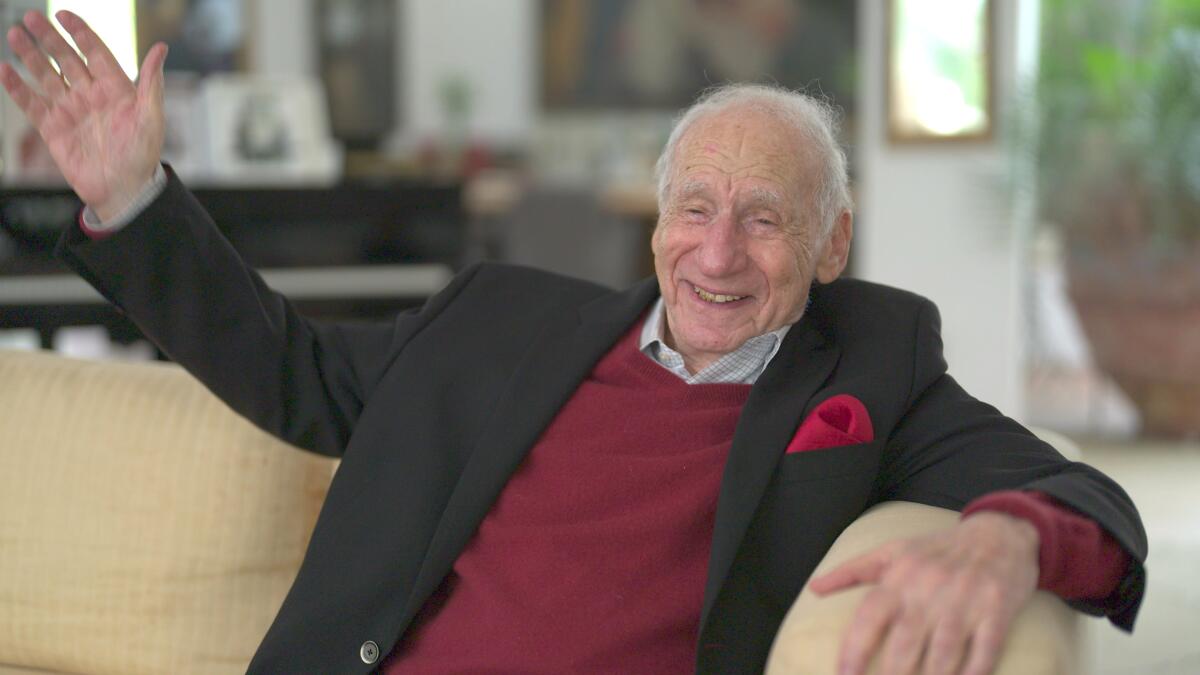
Although the doc omits discussion of Wilder’s early romantic life, which included two failed marriages (he also had an adopted daughter from whom he became estranged), his last two, far happier marriages fill much of the film’s final half-hour.
Wilder’s fortuitous meeting of “Saturday Night Live” cast member Gilda Radner when they co-starred in the 1982 action-comedy “Hanky Panky” led the unlikely soulmates to wed and do two more big-screen pairings: “The Woman in Red” and “Haunted Honeymoon,” both scripted and directed by Wilder.
But as outlined by Wilder (via his audiobook narration and archival TV interview bits), as well as by Mel Brooks and Radner’s friends Alan and Robin Zweibel, tragedy intervened when Radner was diagnosed with ovarian cancer in 1986. She died in 1989. Though the details of the Wilder-Radner union are more than familiar by now, their story, as retold here, remains deeply affecting.
Also touchingly portrayed is Wilder’s subsequent marriage to Karen Webb, a supervisor at the then-named New York League for the Hard of Hearing, with whom he first consulted in 1988 for his role as a deaf shopowner in “See No Evil, Hear No Evil.” They reunited after Radner’s death, began dating, wed in 1991 and lived together in Connecticut until Wilder died. His widow sheds plenty of heartfelt light on their seemingly idyllic relationship, during which time Wilder ultimately wound down his acting career and focused more on writing and painting. Then came his heartbreaking descent into dementia.
Completists may wish Frank and Kirschbaum covered Wilder’s 1990s-era acting jobs — a few last feature films, several TV movies, a short-lived sitcom — and better explored his choice to retire from acting. However, his last on-screen appearance, an Emmy-winning guest role on TV’s “Will & Grace,” is featured, along with amusing clips from the show and glowing words from series star Eric McCormack.
If “Remembering Gene Wilder” isn’t always the most dimensional or penetrating look at an actor’s life and psyche, it still serves as an upbeat tribute to a singular movie star, and a worthy reminder of how much he’s missed.
'Remembering Gene Wilder'
Not rated
Running time: 1 hour, 32 minutes
Playing: In limited release Friday, March 22.
More to Read
Only good movies
Get the Indie Focus newsletter, Mark Olsen's weekly guide to the world of cinema.
You may occasionally receive promotional content from the Los Angeles Times.

